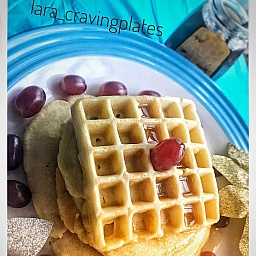Tagged Questions

Michaela Odafe
It is not advisable to do so. Milk, cereal, fo mula are to be taken fresh and all leftovers discarded.
Note that every child below 6month old should be on EBF other wise ,you can add any age appropriate milk for your child's pap
It is not advisable to use glucose in children's pap, an age appropriate formula should be used.
Also as regards to sugar , YES YOU CAN BUT NOT RECOMMENDED. THE LESS WHITE SUGAR THE BABY DOES THE BETTER. JUST USE APPROPRIATE INFANT FORMULA TO SWEETEN THE PAP
Also as regards to sugar , YES YOU CAN BUT NOT RECOMMENDED. THE LESS WHITE SUGAR THE BABY DOES THE BETTER. JUST USE APPROPRIATE INFANT FORMULA TO SWEETEN THE PAP
No need to add sugar, you can sweeten it with an age appropriate formula
It is not compulsory for your baby to eat
pap. You only need to ensure a balanced
diet with fruits and vegetables. Keep
offering the adult food as the baby
demands
pap. You only need to ensure a balanced
diet with fruits and vegetables. Keep
offering the adult food as the baby
demands
No, do not add glucose to your baby’s pap rather use only age (6 - 12 months) appropriate formula.
Your baby is not supposed to start taking pap yet .
You will need to let baby see a paediatrician since the vomiting is active and not Just passive regurgitation
You will need to let baby see a paediatrician since the vomiting is active and not Just passive regurgitation
All your baby needs for the first 6 months is breastmilk. Your breastmilk contains everything your baby needs. Continue to breastfeed exclusively, at 6 months you can add complimentary feeding like papa, match crayfish etc
You can add a table spoon of palm oil and cook on fire.
Egg can also be added, it should be cooked as well, please do not give raw egg.
This make the pap a balanced meal.
Egg can also be added, it should be cooked as well, please do not give raw egg.
This make the pap a balanced meal.

Dr Aina Johnson
Paediatrician
Adding palm oil is a way of fortifying the pap. Add just a table spoon
Babies crawl when they are ready averagely 9 months Some don't even crawl..
You can try other brands of formula when the baby is 6months old. You can also introduce the baby to the regular family foods.
No, ma'am, it is not advisable to use synthetic sweetener or sugar. Use age-appropriate milk to sweeten your baby's food.
If uve not deworm within 6months, u can deworm her

Dr. Dara Abiodun
Medical Doctor
Create routines around mealtime.
Routines make children feel loved and secure. Establish regular meal and snack times beginning when your child is 9-12 months old. Routines help children look forward to each meal.
Routines make children feel loved and secure. Establish regular meal and snack times beginning when your child is 9-12 months old. Routines help children look forward to each meal.
At this stage, breastmilk alone is not enough for your baby at this age so you will have to keep offering variety of complementary food and feed him patiently by yourself.
You need a good dose of patience when feeding children especially those who are just learning to eat.
You need a good dose of patience when feeding children especially those who are just learning to eat.
Yes, provided the child is not reacting to it.
Adding palm oil is a way of fortifying the pap. Add just a table spoon
Here are some ways to help your child become a healthy eater:
1. Remember: Meals are about more than food. They are a time to connect with your child and to support her overall development. Talk with your child during meals and don’t let her eat alone. This helps build strong family relationships.
2. Create routines around mealtime.
Routines make children feel loved and secure. Establish regular meal and snack times beginning when your child is 9-12 months old. Routines help children look forward to each meal.
3. Offer 3 to 4 healthy food choices (that your child likes) at each meal. Research shows that children will choose a healthy diet when they are offered a selection of different healthy foods.
4. Don’t force your baby or toddler to eat.
This often results in children refusing food and eating less.
5. Don’t give up on new foods!
Patience is the key. You may have to offer your child a new food 10 or 15 times before he will eat it.
6. Turn off the TV (computers, etc) at mealtime.
The television can distract children from eating. It also takes time away from talking as a family.
7. Healthy eating and exercise go hand in hand. So make active play a part of everyday family life.
8. If you are concerned about your child’s weight or activity level, talk to your child’s health care provider.
1. Remember: Meals are about more than food. They are a time to connect with your child and to support her overall development. Talk with your child during meals and don’t let her eat alone. This helps build strong family relationships.
2. Create routines around mealtime.
Routines make children feel loved and secure. Establish regular meal and snack times beginning when your child is 9-12 months old. Routines help children look forward to each meal.
3. Offer 3 to 4 healthy food choices (that your child likes) at each meal. Research shows that children will choose a healthy diet when they are offered a selection of different healthy foods.
4. Don’t force your baby or toddler to eat.
This often results in children refusing food and eating less.
5. Don’t give up on new foods!
Patience is the key. You may have to offer your child a new food 10 or 15 times before he will eat it.
6. Turn off the TV (computers, etc) at mealtime.
The television can distract children from eating. It also takes time away from talking as a family.
7. Healthy eating and exercise go hand in hand. So make active play a part of everyday family life.
8. If you are concerned about your child’s weight or activity level, talk to your child’s health care provider.
Try to wait until 6 months. Try to see a lactation expert to help you



